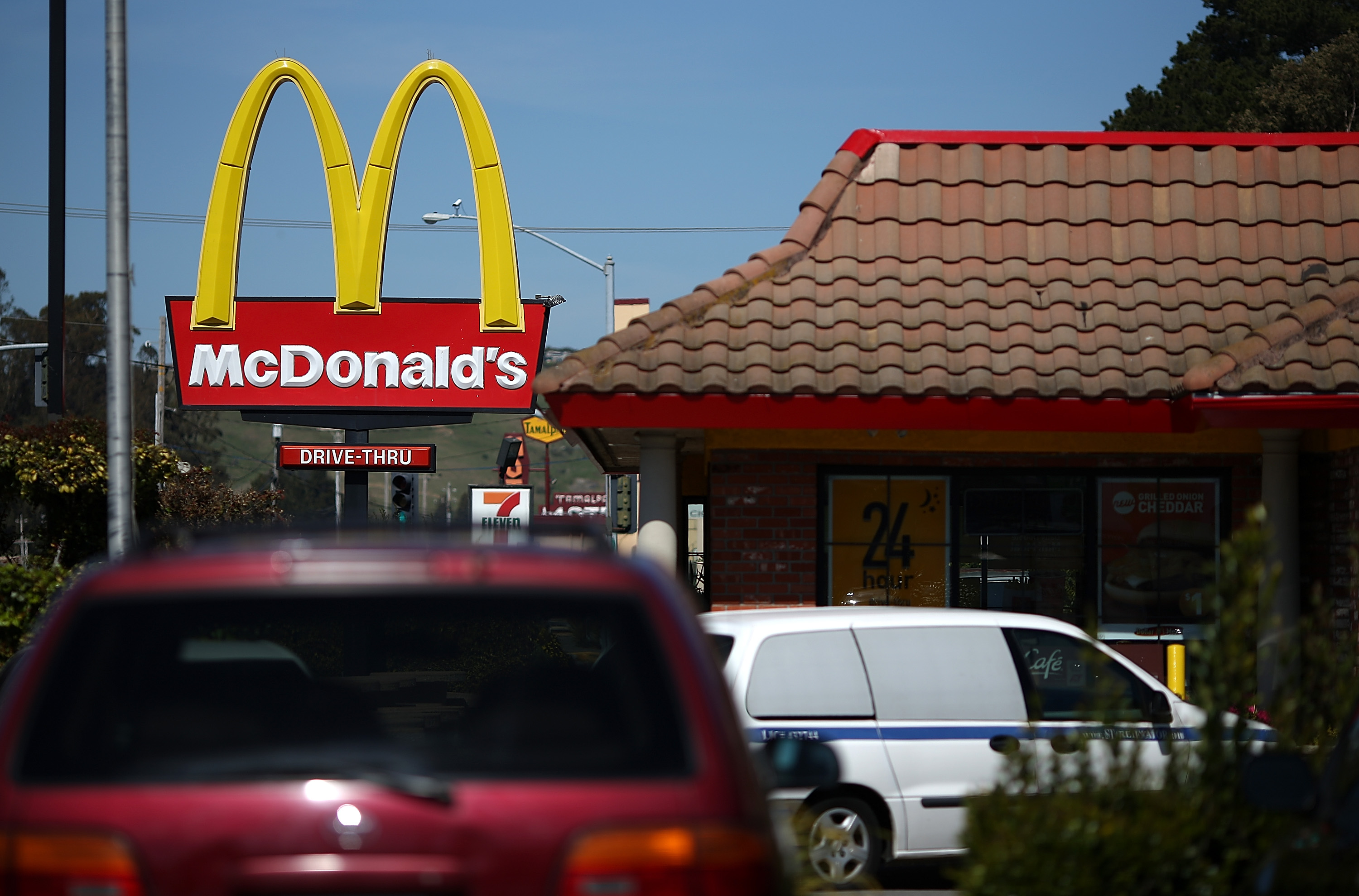An identity crisis at McDonald's
McDonald's has suffered increasingly steep sales declines as customers turn to seemingly healthier options

A free daily email with the biggest news stories of the day – and the best features from TheWeek.com
You are now subscribed
Your newsletter sign-up was successful
It's tough times for the Golden Arches, said Quentin Fottrell at Market Watch. After 60 years atop the fast-food market, McDonald's has suffered several years of increasingly steep sales declines, as customers give up fast food or turn to seemingly fresher, healthier options at chains like Chipotle. Last week, McDonald's CEO Don Thompson was forced into retirement following a disastrous 21 percent drop in sales in the previous quarter. Striking employees in the U.S. demanding higher wages and a tainted meat scandal in China have only added to the company's woes. The chain has simply failed to keep up with changing tastes, said Neil Munshi at the Financial Times. Executives have tried in vain to lure younger, more health-conscious customers by adding menu options like wraps, salads, and fruit over the past several years. But those efforts have largely backfired, and the menu has just become "so bloated that it confuses customers and slows down service," frustrating the loyal customers who just want a basic Big Mac and fries.
Meanwhile, "fast casual" chains like Five Guys, Panera, and Chipotle are eating McDonald's lunch, said Roberto Ferdman at The Washington Post. The fast-casual market grew a blistering 550 percent over the past decade and a half, with players positioning themselves as purveyors of evolved fast food. A poster child for this success has been Shake Shack, which began as a humble burger stand in 2004 and went public last week with a $1.6 billion valuation despite having just 36 locations worldwide. Fast-casual chains "offer a simple menu, allow customization, ostensibly treat their employees better, and serve food that is (or is perceived as) healthier, fresher, or more ethically raised," said Adam Chandler at The Atlantic. If McDonald's has any hope for a successful turnaround, "it will incorporate more components from the fast-casual playbook, from pay policy to food quality."
Mimicking its fast-casual brethren would actually be a mistake, said Susan Berfield at Bloomberg Business. The key to the Big Mac empire has always been consistency and efficiency; it's a feat of "industrial wonder" that French fries are cooked for exactly the same amount of time in every single one of the chain's 36,000 global locations. That uniformity is necessary when a company has grown so large that it employs more people than the U.S. military, but it means that even the most minor changes, like allowing customers to customize burger toppings, "can break the system." Other small tweaks McDonald's has recently attempted, like adapting items to regional tastes at a handful of outlets or offering breakfast all day, have just led to higher costs and quality-control problems. If McDonald's hopes to regain its past glory, it needs to "double down on what it does best," said Holman W. Jenkins Jr. at The Wall Street Journal: namely, cheap, convenient, and affordable food. The chain found success back in the 1950s doing a few things very well, and it could easily win back customers by "sharpening its focus." McDonald's executives shouldn't look at Shake Shack and shudder. They should see that tiny chain's good fortune as "good news for anybody whose business is burgers and fries."
The Week
Escape your echo chamber. Get the facts behind the news, plus analysis from multiple perspectives.

Sign up for The Week's Free Newsletters
From our morning news briefing to a weekly Good News Newsletter, get the best of The Week delivered directly to your inbox.
From our morning news briefing to a weekly Good News Newsletter, get the best of The Week delivered directly to your inbox.
A free daily email with the biggest news stories of the day – and the best features from TheWeek.com
-
 Political cartoons for February 16
Political cartoons for February 16Cartoons Monday’s political cartoons include President's Day, a valentine from the Epstein files, and more
-
 Regent Hong Kong: a tranquil haven with a prime waterfront spot
Regent Hong Kong: a tranquil haven with a prime waterfront spotThe Week Recommends The trendy hotel recently underwent an extensive two-year revamp
-
 The problem with diagnosing profound autism
The problem with diagnosing profound autismThe Explainer Experts are reconsidering the idea of autism as a spectrum, which could impact diagnoses and policy making for the condition
-
 The pros and cons of noncompete agreements
The pros and cons of noncompete agreementsThe Explainer The FTC wants to ban companies from binding their employees with noncompete agreements. Who would this benefit, and who would it hurt?
-
 What experts are saying about the economy's surprise contraction
What experts are saying about the economy's surprise contractionThe Explainer The sharpest opinions on the debate from around the web
-
 The death of cities was greatly exaggerated
The death of cities was greatly exaggeratedThe Explainer Why the pandemic predictions about urban flight were wrong
-
 The housing crisis is here
The housing crisis is hereThe Explainer As the pandemic takes its toll, renters face eviction even as buyers are bidding higher
-
 How to be an ally to marginalized coworkers
How to be an ally to marginalized coworkersThe Explainer Show up for your colleagues by showing that you see them and their struggles
-
 What the stock market knows
What the stock market knowsThe Explainer Publicly traded companies are going to wallop small businesses
-
 Can the government save small businesses?
Can the government save small businesses?The Explainer Many are fighting for a fair share of the coronavirus rescue package
-
 How the oil crash could turn into a much bigger economic shock
How the oil crash could turn into a much bigger economic shockThe Explainer This could be a huge problem for the entire economy